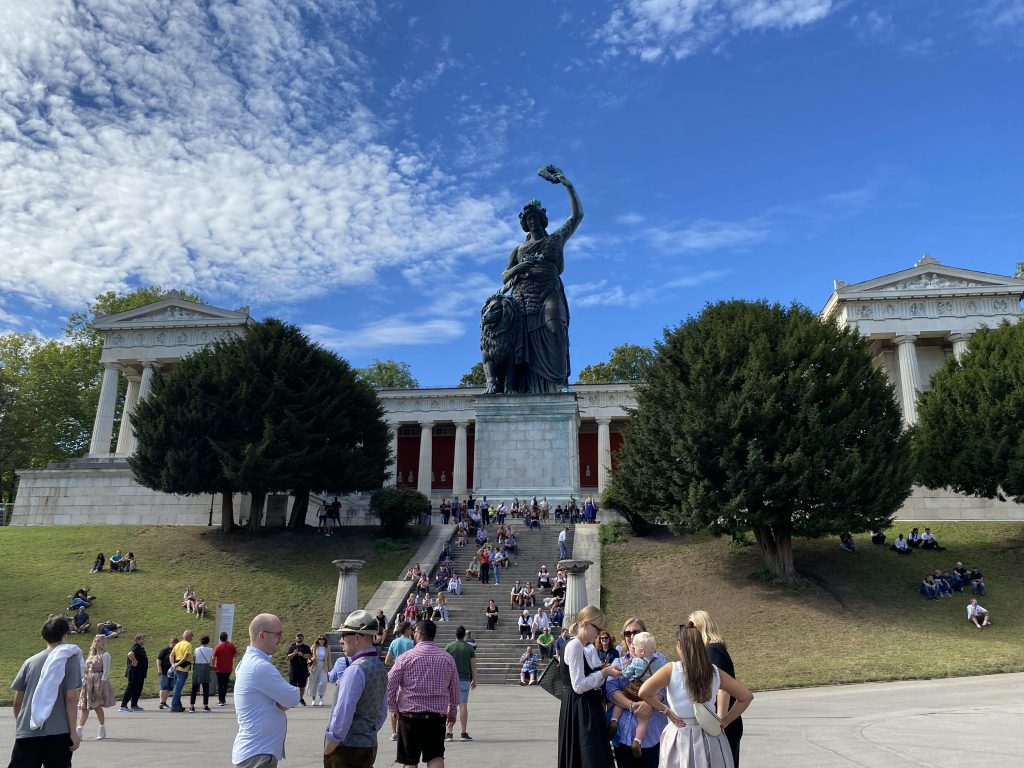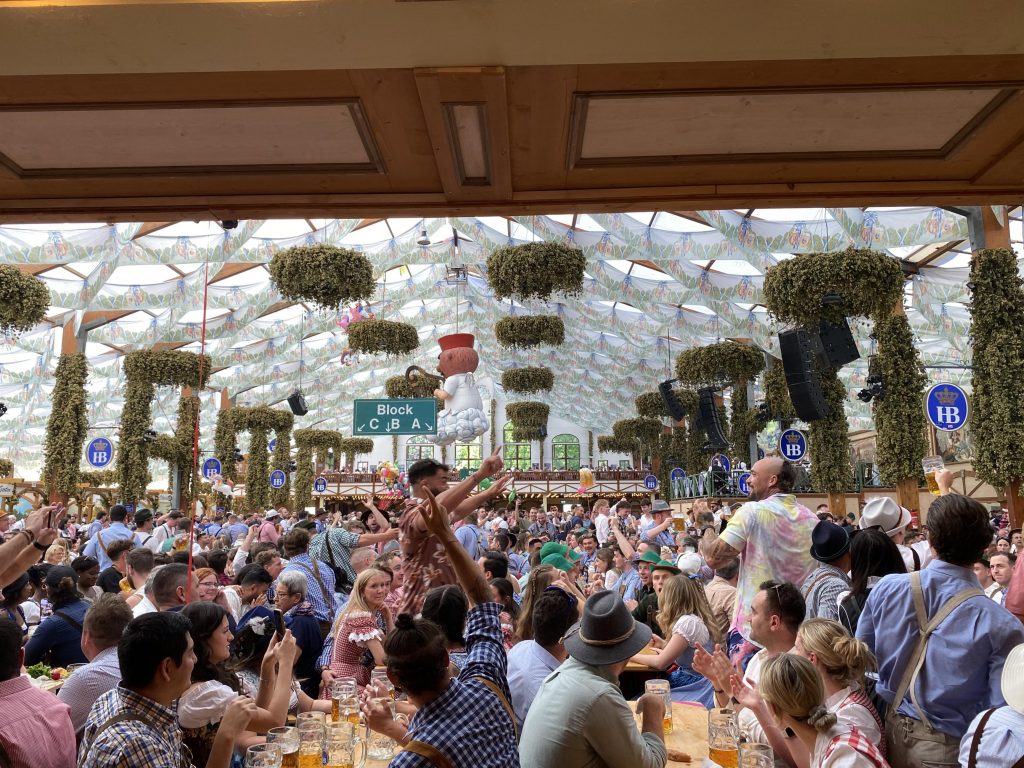Raising a stein to Munich’s most anticipated festival
Lager is the comfort food of cold beer, often reserved for occasions when one desires something familiar rather than navigating the uncharted waters of experimental brews. Time and time again, the vagaries of law school have led us back to lager: it’s what we reached for after blistering exams, disappointing recruit results, and locking down ever-elusive articling positions. For the two of us, both limping our way through our final year of law school, the call of lager was undeniable.
Naturally, this led us straight to the heart of beer culture: Munich. The city is renowned for its deep-rooted beer traditions, with lager having long been the vocation of Munich’s thirsty monks. Augustiner beer, for example, was first brewed by the Augustinian monastery in 1328. The city also hosts the world’s premier celebration of lager—or “helles,” as it’s locally known—with millions of visitors descending upon Munich’s Oktoberfest fairgrounds every fall.
The attire is part of the festival’s charm, with men donning lederhosen and women slipping into dirndls. Self-conscious tourists don’t need to worry about fitting in, as many shops in Munich offer rental services to ensure everyone can partake in the traditional dress-up. We were outfitted with the help of a local rental shop whose charming employees assured us that we needn’t worry about our lederhosen being many sizes too large—according to them, we would surely drink enough beer that they’d fit snugly by the end of the night.
Oktoberfest, of course, isn’t only about beer. The fairgrounds offer all-ages entertainment in the form of rollercoasters, funhouses, bumper cars, and a ferris wheel. That said, for most, the highlight remains the beer. As afternoon drifts into evening, many find their way into one of Oktoberfest’s many beer tents—massive halls filled with bench seating and packed to the brim with clamouring partiers—to enjoy the celebration. Served in iconic one-litre steins, the helles flows freely.
However, a word to the wise: after a few steins, the rich flavours might start to die on the tongue. Likewise, as loyal Canucks, we were accustomed to the usual Canadian safeguards against excessive drinking—namely, vigilant bartenders and waitstaff, eager to avoid incurring any commercial host liability for whatever drunken misadventures a visibly drunk patron might engage in after their visit. None of these familiar practices exist at Oktoberfest. In fact, the staff seemed to observe only one rule: don’t stand on the tables—doing so earns one a swift boot from any of Oktoberfest’s more than two dozen beer halls. Yet, we repeatedly witnessed daring drinkers climbing onto their tables, hoping to chug an entire stein as onlookers applauded, before security swiftly escorted them to the door.
Our nights ended unpredictably, as they often do when one drinks a little too much. Alex found himself sleeping very soundly in his bed in our hotel room, snug in his lederhosen and with the lights on. Having left later than him and without a room key, Andrew found himself sleeping in the hotel lobby. Ultimately, Oktoberfest is more than just a festival—it’s a tribute to tradition, culture, and the timeless appeal of a good lager. So, here’s to the comfort of old favourites and the allure of Munich’s grandest celebration. Prost!








